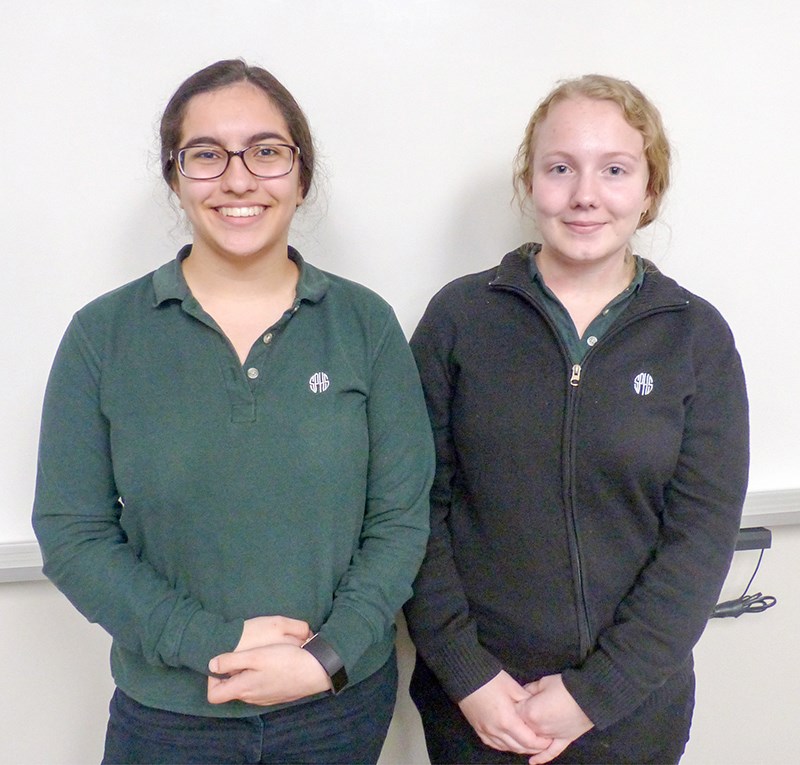Jake Romphf
A pair of students from St. Patrick’s High School won a gold medal at the Canada Wide Science Fair by conducting new research on a timely subject – cannabis use.
Kendra Prasad and Hannah McInnis’s study on the relationship between cannabis, brain injury and sleep wowed the judges at the national competition in Ottawa earlier this month.
The Grade 11 students needed an overall mark of 96 or higher on their display board, presentation and scientific content to snag the gold. They competed in the senior division for Grades 11 and 12, with only ten gold medals awarded in each age group.
The project’s inspiration came from learning that doctors are prescribing medical marijuana to brain injury survivors, despite little data on its benefits.
“Doctors are prescribing it anyway, with not enough research done on the long-term effects,” Prasad said.
Both girls volunteer at the Brain Injury Association of Sarnia-Lambton, and thought cannabis was interesting because of its expected legalization.
“Our project was different. It was relevant and it was a study,” said Prasad.
It focused on cannabis’ effect on the rapid eye movement (REM) sleep cycle of brain injury survivors. They chose REM because it’s the most consistent sleep stage throughout life and between genders, they said.
Not getting the appropriate amount of REM sleep can cause short-term memory loss, mood swings and impact emotional capacity, which are also symptoms of brain injury.
The girls used Fitbits to measure the sleep of 41 people divided into four relatively even groups:
1 - control group; no brain injury, no marijuana use
2 - brain injury and marijuana user
3- brain injury only
4 - any form of marijuana use
They found a significant difference between the control group and the other three.
“The other three groups were not getting between 20% and 25% REM sleep, which is necessary,” said Prasad.
Little difference was noted between the three non-control groups.
“We can’t say that taking marijuana is worse for people with brain injuries, because we didn’t see a statistically significant result. But we can say it’s not helping them, according to our data,” McInnis said.
“Adding the symptoms of cannabis onto the symptoms of a brain injury is not really that logical.”
For their science fair win, Prasad and McInnis received scholarships of up to $5,000 to multiple Canadian universities, should they choose to attend them.
Prasad said she hopes to become a doctor, do forensic pathology and then become a professor.
McInnis said she is still figuring out her path, but she knows she wants to study science.
